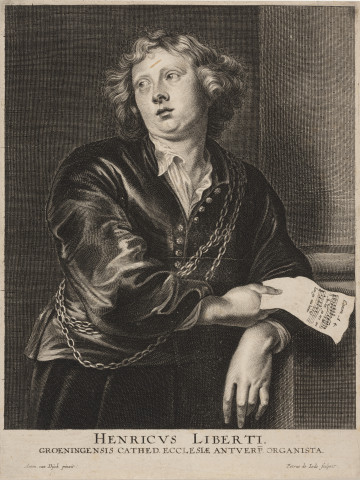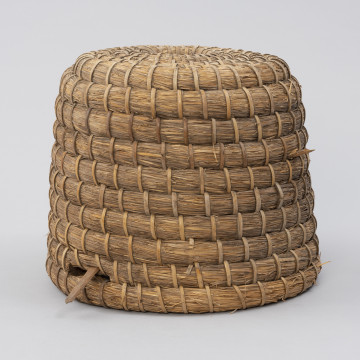
Portrait
circa 1632
National Museum in Szczecin
Part of the collection: Vehicles and harnesses
A baggage wagon is a passenger and cargo vehicle drawn by four horses. It was produced around the middle of the 19th century in Vienna. The Łańcut baggage wagon is one of the two wagons in Europe kept in the former magnate coach houses. The passenger and baggage wagons, such as the Łańcut one, were vehicles intended to transport luggage, but were also used as a means of transport for personal servants in the 19th century. Therefore, behind the coachman's box, the Łańcut wagon has a two-person chaise for the servants. The chaise, with a comfortable, soft seat and a hood with windows and pockets for small items in side walls, has folded stairs. Even though it is not as luxurious as an enclosed coach, it was equipped in a mode to make the travelling comfortable and not to expose the travellers to rain or cold. A mobile, multi-panel window, which was assembled at the top and side edges of the hood forms a part of the chaise. It covered the travellers to the waist; below, they were protected by a leather apron. Thanks to such solution, the servants travelling in the wagon were isolated from snow, rain and wind. In the back section, behind the chaise, the wagon was provided with a huge rectangular chest made of wood, closed at the back with two-winged doors, where smaller luggage was transported. Furthermore, by the upper side corners, the chest had hooks, where more trunks could be attached. Aldona Cholewianka-Kruszyńska
Other names
luggage van
Author / creator
Dimensions
height: 250 cm, width: 185 cm
Object type
Vehicles and harnesses
Technique
installation
Material
leather, metal, wood, corduroy
Origin / acquisition method
decyzja administracyjna
Creation / finding place
Owner
Castle Museum in Łańcut
Identification number
Location / status

circa 1632
National Museum in Szczecin

1965
National Museum in Szczecin

1890 — 1910
National Museum in Szczecin
DISCOVER this TOPIC
Castle Museum in Łańcut
DISCOVER this PATH
Educational path